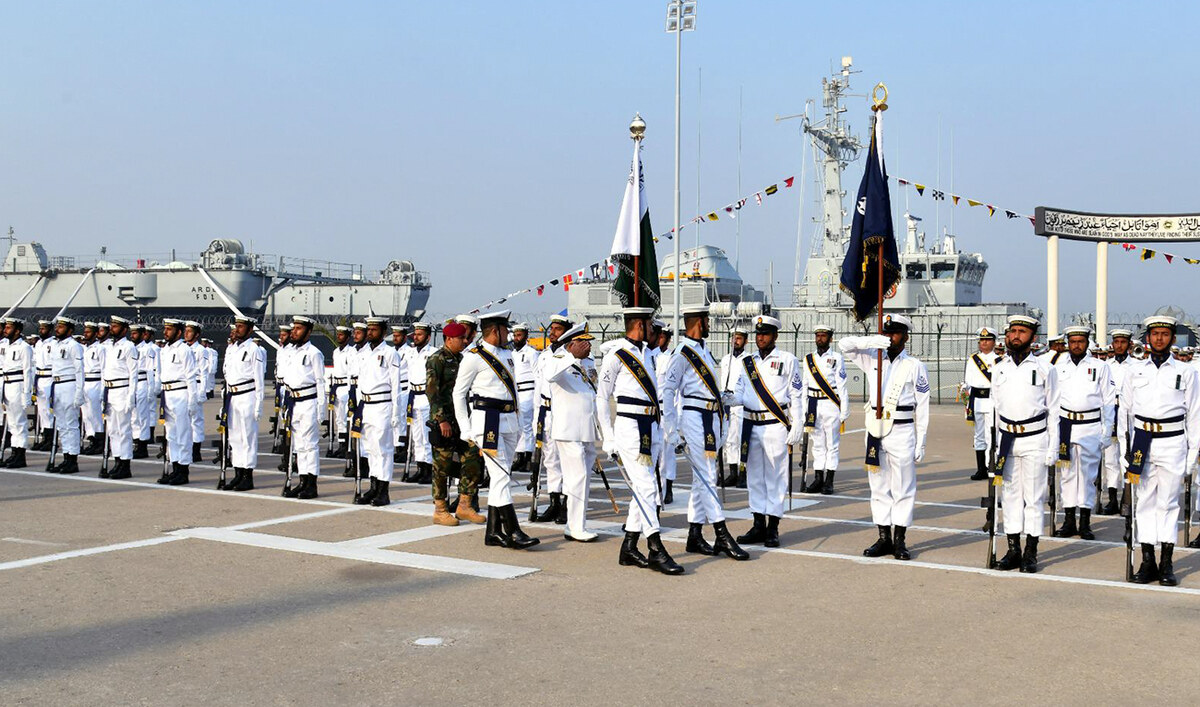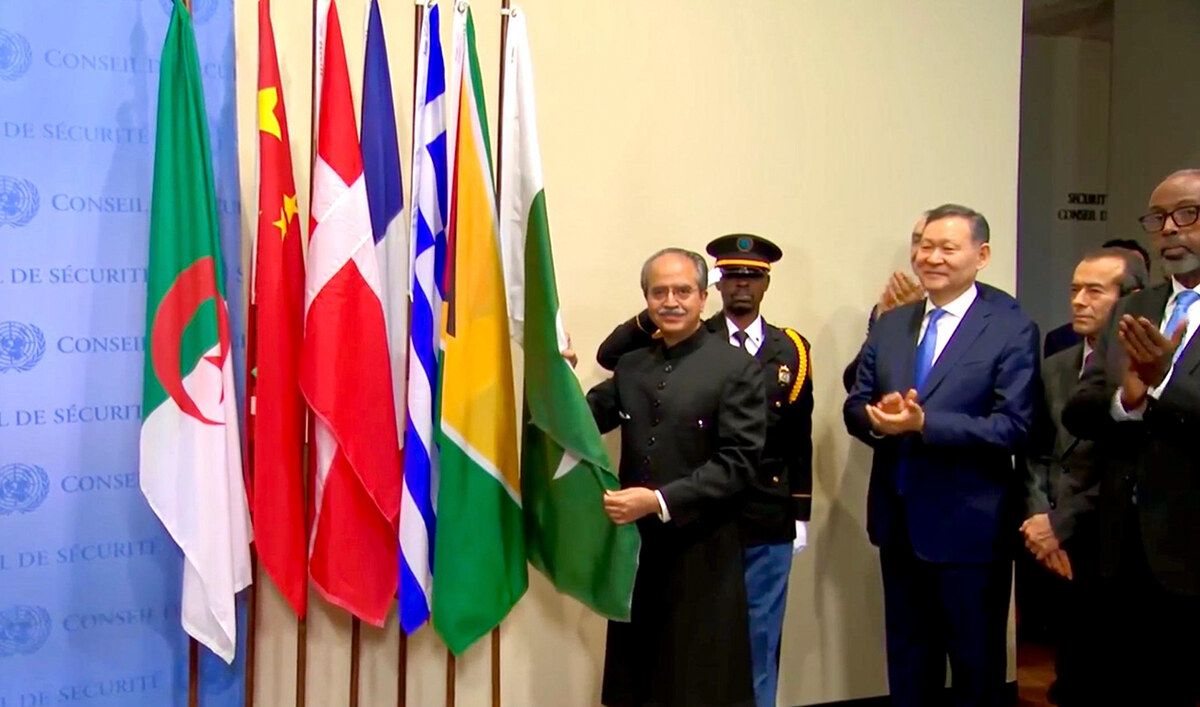ISLAMABAD: Foreign minister Shah Mehmood Qureshi said on Tuesday Pakistan would respond to India’s “act of aggression” of violating the de facto border between the two nuclear-armed neighbours, rejecting New Delhi’s claim its warplanes had struck a militant training camp inside Pakistan and killed a large number of fighters.
On Tuesday morning, Pakistani military spokesman Major General Asif Ghafoor announced in a series of Twitter posts that Indian jets had violated the Line of Control (LoC) which splits the disputed Kashmir region into two areas, one administered by Pakistan, one by India. He said the Indian warplanes “hastily escaped” after Pakistan scrambled its own jets after them and “no infrastructure got hit” in the confrontation.
On the other hand, Indian Foreign Secretary Vijay Gokhale said India had struck “the biggest training camp” of the Jaish-e-Mohammed (JeM) militant group near Balakot, about 50km from the LoC in Kashmir, and eliminated a larger number of militants, trainers, senior commanders and attackers training for guerrilla action.
India’s breach has raised the possibility of military escalation between arch-rivals Pakistan and India who have fought three wars since they gained independence from the British in 1947, two of them over Kashmir, which the neighbours both claim in full but rule in part.
By evening, it was still unclear what exactly Indian warplanes had struck and whether the operation was a carefully calibrated attempt to allow the Indian public to blow off steam over a February 14 suicide attack in which at least 40 Indian troopers were killed, without provoking outright war with Pakistan
"This is aggression against Pakistan and Pakistan will respond,” Foreign Minister Qureshi said at a press conference. "The situation is unfolding and god willing, at the political level, at the diplomatic level and at the military level, Pakistan is engaged in planning and Pakistan will also respond."
Reading from a statement issued after an afternoon huddle of the National Security Committee chaired by Prime Minister Imran Khan, Qureshi said the “forum concluded that India has committed uncalled for aggression to which Pakistan shall respond at the time and place of its choosing.”
“Once again Indian government has resorted to a self serving, reckless and fictitious claim,” the foreign minister said, referring to Indian claims it had targeted a militant camp near Balakot and caused heavy casualties.
Outlining Pakistan’s future steps, Qureshi said the government had decided to requisition a joint session of parliament on Wednesday as well as a meeting of the National Command Authority which overseas Pakistan’s nuclear weapons.
“PM has directed that elements of national power including the Armed Forces and the people of Pakistan remain prepared for all eventualities,” Qureshi said.
Addressing a press conference in Islamabad’s twin city of Rawalpindi, army spokesman Ghafoor said India had failed to surprise Pakistan.
“We were ready, we responded, we denied,” he said. “It is your (India's) turn now to wait and get ready for our surprise … Our response will be different and the response will come.”
Ghafoor said Indian jets, which were in Pakistani airspace for about four minutes, remained only within 4-5 nautical miles of the LoC and deployed four bombs that hit open ground in Jaba, about 12km from Balakot.
Mohammad Adil, a resident of Jaba, told local media villagers heard a “hard, terrifying sound” at around 3 a.m. on Tuesday morning which they initially thought was an earthquake or a thunderstorm. This was followed by the sound of five blasts.
“After 5-10 minutes the sound subsided,” he said. In the morning, villagers found “a large hole in the ground.”
“Four or five houses were damaged and one person was also injured,” Adil said.
Reuters quoted an unnamed resident as saying the blasts had occurred near a Jaish-run seminary.
"There is this madrassah on the hilltop," the resident said, requesting anonymity. "The Jaish-e-Mohammed runs it." Another person who also declined to be named said militants had been present in the area for years.
The latest confrontation comes after days of simmering tensions between Pakistan and India over a suicide bombing in Indian-administered Kashmir that was claimed by Jaish. New Delhi blamed Islamabad for the assault and promised a "strong response." Pakistan denies any state complicity.
Although exchanges of artillery and light weapons on the LoC are not uncommon, Tuesday's statements from Pakistan and India are rare public admissions of airspace violations by warplanes.
In September 2016, India said it had conducted “surgical strikes” on militants in Pakistan but Pakistan “completely rejected” the claim. The alleged strikes followed a separatist attack on an army base in Uri near Pakistan and India’s disputed frontier in which 17 soldiers perished.
“If we don't respond, if we exercise this sustained and constant restraint -- what kind of message does it send to the world about our red lines?” political analyst Mosharraf Zaidi told Arab News. “Its seems to mean that the powers-that-be have decided that they would rather have this [violations of Pakistani airspace] than actually listen to the entreaties of the international community and decisively tackle non-state actors.”
“We know that the only way to neutralise India is to take real action and eliminate groups like Jaish-e-Muhammed,” Zaidi said.
Popular talk show host Mohammad Malick said it was unlikely Pakistan would respond “at this point.”
“But if there is another incursion, then Pakistan will and should respond, starting by using artillery across the line of control and taking out Indian army check posts, which could also be escalated to using our air force,” Malick said. “But I don't think Pakistan is going to cross the international boundary line -- unless it's a case of active hot pursuit of Indian troops that try to infiltrate."





















